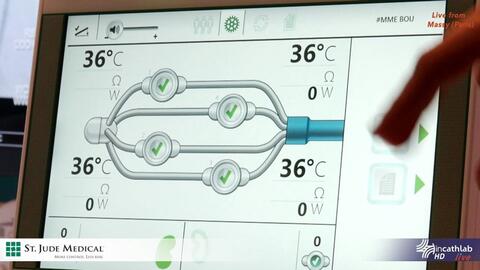
Renal Denervation Improves Cardiac Function and Exercise Duration in a Miniswine Model of Heart Failure with Preserved Ejection Fraction
Aims - Overactivity of the sympathetic nervous system is a common underlying mechanism in development and progression of several heart failure with preserved ejection fraction (HFpEF) comorbidities. Decreasing renal sympathetic nerve activity using catheter-based renal denervation (RDN) systems have shown efficacy in treating resistant hypertension and cardiac dysfunction in heart failure with reduced ejection fraction. The purpose of this study was to determine if modulation of renal sympathetic nerve activity by RDN improves cardiac function and exercise tolerance in a clinically-relevant minipig model of cardiometabolic HFpEF.
Methods and results - Multiple HFpEF comorbidities were induced in adult female Göttingen minipigs by mineralocorticoid excess and a diet high in cholesterol, fat, fructose, and salt. HFpEF minipigs were randomized to bilateral catheter-RDN (n = 5) treatment or sham-RDN (n = 4). RDN therapy reduced renal sympathetic activity in HFpEF minipigs and increased treadmill exercise duration. Following RDN treatment, sustained improvements in diastolic function including E/e′ and left atrial fractional area change were observed. Elevations in resting left ventricular filling and pulmonary pressures in HFpEF minipigs, while indicative of HFpEF severity, were unaffected by RDN treatment. Following RDN treatment, there was a transient reduction in arterial blood pressure and no change in heart rate.
Conclusions - Device-based RDN may be a potential therapeutic strategy to halt the progression of HFpEF by improving cardiac diastolic function and exercise tolerance.

